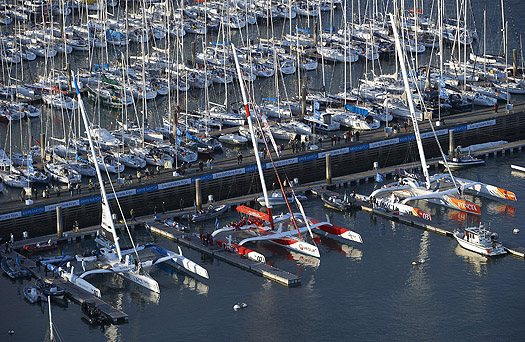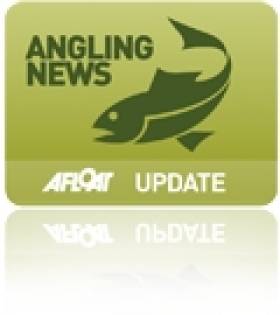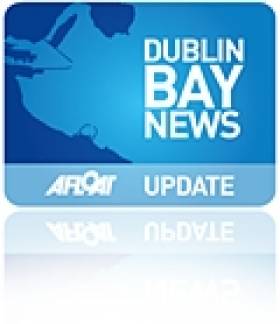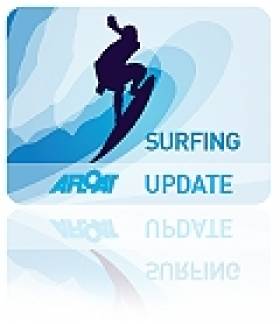Displaying items by tag: support
NI Anglers Take to Facebook to Save Their Salmon
#ANGLING - Northern Ireland river anglers are taking a novel approach to lobbying Stormont over salmon exploitation by harnessing the power of social networking.
According to the News Letter, the NoSalmonNets campaigners "have swapped their fishing rods for laptop computers", using Facebook to attract support for their campaign to bring an end to the offshore netting of wild salmon stocks.
As previously reported on Afloat.ie, Northern Ireland's Department of Culture, Arts and Leisure (DCAL) has called for a voluntary ban on offshore salmon fishing, following new research that shows a significant drop in their numbers in the North's rivers.
Seamus Donnelly of NoSalmonNets has welcomed DCAL's recent decision to stop issusing licences for commercial salmon nets that may "contravene European law" off Antrim's north coast, made in an effort to protect salmon stocks in the Foyle river system.
Donnelly explained that the campaign was borne from frustration at the apparent inaction by the NI Executive over the protection of salmon.
“One of the keys to our success has to be Facebook," he said. "The internet has an unlimited reach and we took advantage of that.”
The News Letter has more on the story HERE.
Dun Laoghaire Earmarked For Stop on First MOD70 Euro Tour
#DUBLIN BAY NEWS - The inaugural European Tour for the MOD70 trimaran class is set to come to Dublin next summer, pending agreement with the relative authorities in January.
The Irish Times reports that the National Yacht Club is at the head of efforts to include an event in Dun Laoghaire on the first tour for the new 70-foot design.
But apart from the Dun Laoghaire Harbour Company, there has so far been little support from local or national authorities despite organisers waiving the €250,000 franchise fee.
John McKenna of tour organiser OC Thirdpole says he is determined to ensure Dublin is included, and that costs will be borne by the competing teams.
However, he added: "The tour needs to be assured that it will have a major public occasion in Dublin if it is to commit to coming here."

The MOD 70 fleet – plans are afoot to bring the fleet to Dun Laoghaire and moor them off the National Yacht Club at the Carlisle Pier
As previously reported on Afloat.ie, Dublin Bay welcomed its first MOD70 earlier this year when yachtsman Roland Jourdain tested his Veolia Environnement trimaran ahead of the Fastnet Race.
The Irish Times has more on the story HERE.
Surfers Welcome New Ruling on Doolin Pier Development
Surfers have hailed the recent ruling by An Bord Pleanála that Clare County Council must reapply for planning permission for its proposed €6 million redevelopment of Doolin Pier.
As previously reported on Afloat.ie, local surfers and the Irish Surfing Association (ISA) had expressed dismay over the current development plans – approved by the council earlier this year – which they maintain would result in the destruction of the "world renowned" waves at Doolin Point and Crab Island.
The Irish Times reports that the council must now resubmit its planning application and prepare and environmental impact statement (EIS) due to the potential impact on tidal and wave patterns in the area, setting back plans for at least a year.
The proposed scheme already has support from the local business community and the Doolin Coast Guard unit, which argues that congestion on the pier in peak tourist periods may interfere with rescue efforts.
A spokesperson for the West Coast Surf Club said that both it and the ISA were available "to meet with the council to progress a mutually agreeable design for the pier".
The Irish Times has more on the story HERE.
Dubarry Profits On the Rise
Shoe manufacturer Dubarry saw a 44 per cent increase in overseas sales last year, The Irish Times reports.
The firm, which is a long-time supporter of sailing in Ireland, reported pretax profits of €1.95 million on revenue that topped the €20 million mark, an increase of more than €4 million on the previous year.
Though shoe sales are on the decline in Ireland, growth in export markets - and the success of Dubarry's new clothing range – has more than offset any domestic losses, said marketing director Michael Walsh.
Dubarry was recently title sponsor of the Fireball World Championships at Sligo Yacht Club last month.
The Irish Times has more on the story HERE.




























































